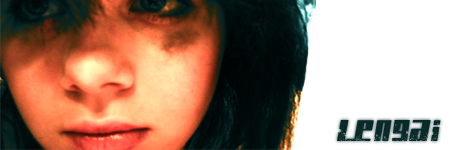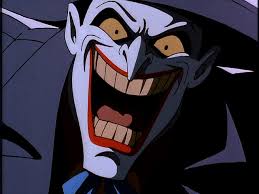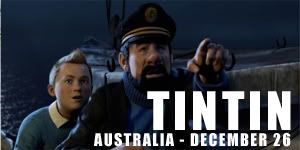The Shack
24 posts •
Page 1 of 1
The Shack
I've just finished a novel by William Young called The Shack
The book explores the very nature of God in a very unique way through the eyes of a person suffering incalculable grief. Even those of us who are not parents do not have to try too hard to imagine the what may happen to a parent when their greatest fear is realized.
I really don’t want to give too much a away but yet I want to convey a desire to read this book. As a novel, it is an extremely compelling and interesting read. It really moves at an excellent pace and did an excellent job of wrapping me up in the story. It’s worth the read for just that alone.
As a theological exploration into the very nature of God, it’s a must read for anyone who spends any time pondering the nature of the One who created us. The ideas presented in the book should be explored by every apologist and by just anyone who ponders why a being that is in no way in need of us desires a relationship with us anyways.
Who else has read this one or is thinking about it?
The book explores the very nature of God in a very unique way through the eyes of a person suffering incalculable grief. Even those of us who are not parents do not have to try too hard to imagine the what may happen to a parent when their greatest fear is realized.
I really don’t want to give too much a away but yet I want to convey a desire to read this book. As a novel, it is an extremely compelling and interesting read. It really moves at an excellent pace and did an excellent job of wrapping me up in the story. It’s worth the read for just that alone.
As a theological exploration into the very nature of God, it’s a must read for anyone who spends any time pondering the nature of the One who created us. The ideas presented in the book should be explored by every apologist and by just anyone who ponders why a being that is in no way in need of us desires a relationship with us anyways.
Who else has read this one or is thinking about it?
[color="Red"]Please visit Love146.org[/color]
A member of the Society of Hatted Members

If your pedantic about grammar, its unlikely that you'll copy and paste this into your sig, to.
A member of the Society of Hatted Members

If your pedantic about grammar, its unlikely that you'll copy and paste this into your sig, to.
-

termyt - Posts: 4289
- Joined: Sat Jun 26, 2004 12:00 pm
- Location: oHIo
I had someone attempt to make me read this book and I wasn't interested at the time. This is partially due to an excess of reading material, but also a variety of impressions I got from the jacket and endorsements. A novel is a larger investment into a theological position than an article, obviously.
However, with your recommendation I have to at least consider it. But I have one question, to be answered directly, via spoilers, or whatever suits your fancy: what, in the end, is the book's answer to the question of why God wants a relationship with humanity?
However, with your recommendation I have to at least consider it. But I have one question, to be answered directly, via spoilers, or whatever suits your fancy: what, in the end, is the book's answer to the question of why God wants a relationship with humanity?
-

uc pseudonym - Posts: 15506
- Joined: Tue Jun 10, 2003 4:00 am
- Location: Tanzania
I had heard this book mentioned several times before I read this post. Apparently, it is quite popular. I considered reading it, but I read several Amazon reviews that pointed out quite a few major theological innaccuracies. So, my question to you is: how serious does the book take itself? Is it trying to put forth some new brand of theology, or is it merely taking a few liberties with theology to create an engaging novel that has spiritual themes?
Where an Eidolon, named night, on a black throne reigns upright.
-

ich1990 - Posts: 1546
- Joined: Mon Apr 16, 2007 2:01 pm
- Location: The Land of Sona-Nyl
I know how you feel. I always react poorly when some one hands me a book that I "must read." Except this time it came from a person I respect and admire, so I gave it a shot. As for an answer to your question, [spoiler]The book doesn't really answer that question directly. It paints a picture of God as being most passionately interested in relationships. It's kind of a who He is / what He does sort of thing. The book specifically points out that God is perfectly fulfilled on his own and has absolutely no need for us –]uc pseudonym (post: 1247416) wrote:However, with your recommendation I have to at least consider it. But I have one question, to be answered directly, via spoilers, or whatever suits your fancy: what, in the end, is the book's answer to the question of why God wants a relationship with humanity?
Inaccuracies will exist in any work of man, especially when dealing with something outside our ability to perceive. Only one man’]major ones[/i]. What the book does do, however, is refute what tradition and cultural bias tells us what God is and challenge us to rethink who God is and what He means to humanity. It’s too easy to take what our impressions of God are and turn them into dogma. Then anything that challenges that perception becomes heresy.ich1990 (post: 1247431) wrote:I had heard this book mentioned several times before I read this post. Apparently, it is quite popular. I considered reading it, but I read several Amazon reviews that pointed out quite a few major theological innaccuracies. So, my question to you is: how serious does the book take itself? Is it trying to put forth some new brand of theology, or is it merely taking a few liberties with theology to create an engaging novel that has spiritual themes?
The book is a novel, but it is also a very serious exploration into the personhood of the living God. It will definitely challenge your perceptions in a legitimate and positive way – which alone makes it worth reading and exploring.
I have no doubt that some very earnest Christians will not be able to accept the image of God the book outs forth. I don’t think that means the book is wrong or without merit. I also do not think that makes those who reject the book’s imagery any less Christian. I myself, however, like to take any serious writing with an open mind earnestly seeking the truth instead of looking for validation on my present beliefs. Then with an open mind, you can accept or reject the author’s message. Either way, you are sure to grow.
[color="Red"]Please visit Love146.org[/color]
A member of the Society of Hatted Members

If your pedantic about grammar, its unlikely that you'll copy and paste this into your sig, to.
A member of the Society of Hatted Members

If your pedantic about grammar, its unlikely that you'll copy and paste this into your sig, to.
-

termyt - Posts: 4289
- Joined: Sat Jun 26, 2004 12:00 pm
- Location: oHIo
I, too, have heard of this, but in a different light. Many of my professors are skeptical of it, and some outright against it. However, I am a big believer in choosing for myself whether a book is wholesome or not. It is, as you say, a legitimate undertaking, and surely any attempt to answer such a difficult question is worth some sort of admiration.
I'm surprised they are calling it the next Pilgrim's Progress. Do you think it's worthy of this accolade?
I'm surprised they are calling it the next Pilgrim's Progress. Do you think it's worthy of this accolade?
-

Ashley - Posts: 7364
- Joined: Mon May 26, 2003 10:00 am
- Location: Fort Worth, Texas
I'm curious to read it, myself. We sell a great deal of copies per day at the Christian bookstore where I work. And now, spoiler boxes just in case.
[spoiler]From what I've read scouring the internets for information, it seems that many people are offended by the physical portrayal of the Trinity as distinctly human figures. God the Father as a somewhat stereotypical black woman named "Papa," the Holy Spirit as an Asian girl, and Christ Himself as a young middle-eastern man. I am not sure what to make of these depictions, myself. When I read about these depictions, it didn't really bother me. At the most, we have only a few vague physical descriptions of God from Scripture (and most of that seems to be poetic) and the rest seems to be culturally imagined, anyway (old man with a beard type stuff. You know, the Family Guy God or the Monty Python and the Holy Grail God). A lot of the negative reviews seem to be hinting that the book has a kind of "make God into what you want Him to be" bent but I don't gather that from the positive reviews. I don't know. DiscerningReader.com hated it but they hate everything. I'm curious to read it for myself.[/spoiler]
[spoiler]From what I've read scouring the internets for information, it seems that many people are offended by the physical portrayal of the Trinity as distinctly human figures. God the Father as a somewhat stereotypical black woman named "Papa," the Holy Spirit as an Asian girl, and Christ Himself as a young middle-eastern man. I am not sure what to make of these depictions, myself. When I read about these depictions, it didn't really bother me. At the most, we have only a few vague physical descriptions of God from Scripture (and most of that seems to be poetic) and the rest seems to be culturally imagined, anyway (old man with a beard type stuff. You know, the Family Guy God or the Monty Python and the Holy Grail God). A lot of the negative reviews seem to be hinting that the book has a kind of "make God into what you want Him to be" bent but I don't gather that from the positive reviews. I don't know. DiscerningReader.com hated it but they hate everything. I'm curious to read it for myself.[/spoiler]
I'm a shoe-in for hater of the year.
-

Kkun - Posts: 3604
- Joined: Thu Feb 26, 2004 9:00 am
- Location: The Player Hater's Ball.
The next Pilgrim's Progress? I don't know. I've seen that comparison made as well but it is not the Pilgrim's Progress. It certainly would not be an apples-to-apples comparison for me. Pilgrim's Progress is an allegorical tale of the path we as Christians travel while The Shack is is a tale with allegorical representations of God. Not really the same thing.
I'd rather let The Shack be The Shack.
I've read similar criticisms and they are not without merit, either. But complaints that the book diminishes God or turns Him into "Your Own Personal Jesus" kind of miss the point of the story - or perhaps prove it. One of the discussions God has with the protagonist is specifically about that - that God is and He is what He is and He is more than we can possible comprehend.
I do not believe this book comes even close to encapsulating the entirety of God, but I don't think it tries either. The Bible gives a far better picture and look how even more confusing in misrepresented that book is. I think it's good to remember that The Shack is a novel and as such is telling the story from a specific context.
I'd rather let The Shack be The Shack.
I've read similar criticisms and they are not without merit, either. But complaints that the book diminishes God or turns Him into "Your Own Personal Jesus" kind of miss the point of the story - or perhaps prove it. One of the discussions God has with the protagonist is specifically about that - that God is and He is what He is and He is more than we can possible comprehend.
I do not believe this book comes even close to encapsulating the entirety of God, but I don't think it tries either. The Bible gives a far better picture and look how even more confusing in misrepresented that book is. I think it's good to remember that The Shack is a novel and as such is telling the story from a specific context.
[color="Red"]Please visit Love146.org[/color]
A member of the Society of Hatted Members

If your pedantic about grammar, its unlikely that you'll copy and paste this into your sig, to.
A member of the Society of Hatted Members

If your pedantic about grammar, its unlikely that you'll copy and paste this into your sig, to.
-

termyt - Posts: 4289
- Joined: Sat Jun 26, 2004 12:00 pm
- Location: oHIo
I'm about half way through it right now and I bought it without knowing about the bit of controversy surrounding it. In any case, I've reached the part where the different personas of God are portrayed, but to me the focus seems to be more on what God says as opposed to how He appears to the main character. This is also supposed to be a true story and if it all really did happen, then God has His own reasons for showing up like that I guess.
Even though there are some things that are inaccurate, it seems that the main theme of the book is right (at least from what I've read so far).
Even though there are some things that are inaccurate, it seems that the main theme of the book is right (at least from what I've read so far).
Fanfiction (updated 1/1/11)-- Lucky Star--Ginsaki ch. 4
[color="Magenta"]Sometimes I post things.[/color]



[color="Magenta"]Sometimes I post things.[/color]



-

LadyRushia - Posts: 3075
- Joined: Mon Aug 06, 2007 8:38 pm
- Location: In a dorm room/a house.
I ended up reading The Shack despite the controversy because I wanted to form my own opinion of it and to see what all the hype was about. It's a best seller, and not just in the Christian section of the bookstores. I figure if the book gets non-Christians wondering about God enough to start pursuing a relationship with Him, then it's a witnessing tool.
However, at some point if they want to learn about the real God and not the one portrayed in the book - the author's opinion of who he thinks God is or should be - then they're going to have to read the Bible, and The Shack makes it sound like the Bible isn't important or worse, that it's misleading. That's why I'd be leery of recommending this book, though it does tackle some basic questions about God and tries to give semi-Biblical answers.
I'm only half way through it, and I keep hoping it'll steer people towards the absolute necessity of redemption through Christ and the importance of reading God's word, but so far I've been disappointed in the way it describes the Bible.
However, at some point if they want to learn about the real God and not the one portrayed in the book - the author's opinion of who he thinks God is or should be - then they're going to have to read the Bible, and The Shack makes it sound like the Bible isn't important or worse, that it's misleading. That's why I'd be leery of recommending this book, though it does tackle some basic questions about God and tries to give semi-Biblical answers.
I'm only half way through it, and I keep hoping it'll steer people towards the absolute necessity of redemption through Christ and the importance of reading God's word, but so far I've been disappointed in the way it describes the Bible.
-

avidrkfan - Posts: 120
- Joined: Sat Apr 30, 2005 5:47 pm
- Location: California
-

Warrior 4 Jesus - Posts: 4844
- Joined: Tue Sep 07, 2004 10:52 pm
- Location: The driest continent that isn't Antarctica.
Because it is helpful to this discussion, I will here re-post New Testament scholar Ben Witherington's remarks upon The Shack at his blog:
Ben Witherington wrote:When a novel by an unknown Christian writer which is basically privately published, goes to the top of the NY Times fiction bestseller list, mostly on the basis of word of mouth, you know something is up. More particularly you know it seems to be a God thing, since word of mouth doesn’]Pilgrim’s Progress[/b] did a long time ago, then again, something is afoot, as Sherlock would say. Since I about to publish my first novel, I had an added reason to ask—‘What’s Up with Dat?’
I want to say from the outset that I thoroughly enjoyed reading this novel, as it involves a lot of interesting theologizing about God and the divine-human encounter, and it clearly has struck a nerve with many people who are longing to have a close encounter with God of the first sort. I am happy this novel can provoke thought and stir up people to reconsider the God of the Bible and what having a relationship with God might mean and be like. And because it is a work of fiction, no one should evaluate this work as if it were an exercise in systematic theology as if it were Barth’s Dogmatics for the Emerging Church, as its aims are much more modest. But there is both good theologizing and bad theologizing that can go on in popular fiction (remember the Da Vinci Code), and so it is certainly fair to ask what is going on in this novel and why has it struck a nerve. This novel is not a literary masterpiece. Its value stands or falls on some of the provocative and interesting things it says about our relationship with God, and it is in regard to its theology that I want to comment in this post. I accept that this novel has gone through various revisions, and rewrites, and could be called a work in progress. What I would suggest is that it needs considerable further theological refinement.
One of things that is up is we are in a post-modern situation and this makes people in some cases more open to things spiritual, but paradoxically less open to traditional church and religion in general (if I see one more bumper sticker saying ‘I believe in Jesus, not Christianity’, or ‘I believe in Jesus, not religion/church etc.’ I think I will be forced to honk). This novel most certainly breathes that ‘Jesus without traditional religion air’. For example, late in the novel Jesus says to the main character in the novel Mackenzie Phillips who is turned off by traditional church “that’s because you’re only seeing the institution, a man-made system. That’s not what I came to build. What I see are people and their lives, a living breathing community of all those who love me, not buildings and programs…Not a bunch of exhausting work and long list of demands, and not sitting in endless meetings staring at the back of people’s heads…just sharing life” (pp. 179-80). It’s all about relationships, and not about religion, according to this approach. And while no one would deny it’s very much about living and loving relationships, the truth of the matter is that it is a false dichotomy to separate Jesus from religion, or for that matter organism from organization. Let me give an illustration on the latter point.
Consider for example a very simple organism indeed—the single cell amoeba a form of protozoa. Now the amoeba is nothing if not flexible. It can subdivide over and over again. But within that larger flexible entity there is organization—there is a nucleus for example, without which it could not exist. It also has pseudo-pods by which it moves and vacuoles by which it maintains its equilibrium. Without structure, order and organization it could not ever be even a viable living thing. This is in fact true of all organisms, and that includes the church, if one wants to call it an organism. That doesn’t mean that human beings aren’t capable of over-institutionalzing things, or ossifying some of the structures, but to pit organism over against organization, with one seen as living and the other dead, one God-given, and the other man-made is absolutely a false dichotomy when it comes to the church.
There is no such thing in heaven or on earth as an organism without organization, order, structure, form, otherwise it would have no distinct shape, purpose, or being. And that applies to God, the church, as well as to all created things—remember the story of how God created the universe in a very specific order with very specific properties? Well it’s always been like that. Creativity takes a particular form and shape, bring order out of chaos or a disparate group of elements. Spontaneity is not particularly more God-like than something that was planned before the foundations of the world and executed over a long period of time. And why we should think an organism like the church needs to normally be completely spontaneous in order to be ‘alive’ is a mystery. Perhaps it is an over-reaction to spending too much time in moribund or unwell churches. One thing I know about real works of art--- they take time to create, and care, and skill, and form, and substance. This is as true of a Matisse masterpiece as of God’s creation of the universe. But I digress.
Another element in the creative theologizing in this book is what is said about the Trinity. Another of the bad guys in this novel is ‘hierarchy’ whether in human relationships or in the Godhead. Consider what is said on p. 122—“Once you have a hierarchy you need rules to protect and administer it, and then you need law and enforcement of rules, and you end up with some kind of chain of command or a system of order that destroys relationship rather than promoting it. You rarely see or experience relationship apart from power. Hierarchy imposes laws and rules and you end up missing the wonder of relationship” Or on the immediately previous page ‘Papa’ (aka God the Father) tells Mack “We [i.e. the Trinity] are in a circle of relationship, not a chain of command. What you are seeing here is relationship without any overlay of power…Hierarchy would make no sense among us. Actually this is your problem, not ours.”
There are some real problems with this sort of formulation, especially when one comes to deal with the fact that the Son is the only begotten of the Father, and only the Son dies on the cross, and no one comes to the Father except through the Son, and no one receives the Spirit except if the Father and Son sends the Spirit. Even in the most revealing of Gospels when it comes to the relationship between Father and Son, the Fourth Gospel, we have a very clear picture of a functional subordination of the Son to the Father—he can only do and say what his Father gives him to do and to say, even though he is fully equal in being to the Father and can be called God in John 1 and 20 (see my study The Shadow of the Almighty). In other words, hierarchy and subordination are not inherently the enemies of equality of being. There is a reason why the church Fathers suggested a triangle rather than a circle best images the Trinity—it has a certain order and shape, just as the relationships within the Trinity do. The image of God in this novel is even pushed so far as to say that following “When we three spoke ourself into human existence as the Son of God, we became fully human. We also chose to embrace all the limitations that this entailed.” (p. 98). This statement is closer to Monarchianism, a heresy the early church rightly condemned than it is to Biblical Christianity.
The Father and the Spirit did not become incarnate as the Son did, and did not assume the limitations the Son did at the point of the Incarnation. Only the Son took on flesh. The three-ness of God must be stressed just as much as the oneness of being or ‘ousia’ of God, and in that three-ness there are things that can be said of the Son that cannot be said of Father or Spirit (for example the Father is unbegotten from all eternity, the Son alone died on the cross, and the Spirit did not become Incarnate with or as Jesus). Equally problematic is the comment on p. 100—“I am one God and I am three persons, and each of the three is fully and entirely the one.” This for sure is not what the ecumenical councils said about the relationship of Father, Son and Spirit. They said that the three persons of God shared the divine nature or ousia, not that each of the 3 are fully and entirely the one (go back and read up on monarchianism, monothelitism, Sabellianism, and Apollonarianism)... (Continued in the Next Post)
-

GhostontheNet - Posts: 1963
- Joined: Mon Aug 02, 2004 12:00 pm
- Location: Aurora, CO
Here's the rest of Ben Witherington wrote.
[quote="Ben Witherington"]Equality in the Godhead no more means ‘the same’ in all respects, functions, or activities any more than it need mean that in human relationships. If there is a place for subordination and obedience within the Trinity, there is a place for it in human relationships. And furthermore, obedience is not at odds with love--- indeed we are commanded to love in the Bible, and thus the two are rightly spoken of in the same breath—as Jesus says “if you love me, you will keep my commandmentsâ€
[quote="Ben Witherington"]Equality in the Godhead no more means ‘the same’ in all respects, functions, or activities any more than it need mean that in human relationships. If there is a place for subordination and obedience within the Trinity, there is a place for it in human relationships. And furthermore, obedience is not at odds with love--- indeed we are commanded to love in the Bible, and thus the two are rightly spoken of in the same breath—as Jesus says “if you love me, you will keep my commandmentsâ€
-

GhostontheNet - Posts: 1963
- Joined: Mon Aug 02, 2004 12:00 pm
- Location: Aurora, CO
I think it's important to remember that the book has a context. I saw the book as emphasizing relationship, but not discounting organization or hierarchy as worthless or insignificant.
The book portrays God reaching out to a broken man full of anger and grief and tired of all the other stuff that goes on in society and especially the church. It would be of little value to reach out to such a person to reinforce that God does punish and rules and organization are needed for us to perform the tasks God has laid out for the church. The main character was already very well aware of all of that and was looking – crying out for something more.
That’s the context of the novel. It is in no way trying to paint an all-inclusive portrait of God in order to replace the Bible. Instead, it seeks to speak to the people who are mired in loneliness or anger or are all to often trapped in those meetings at the church about finance and kids wearing their pants too low.
If you understand the need for relationship – with God and the guy whose head you are staring at – then those meetings take on a different purpose. They become a labor of love instead of a chore maintained for appearance’s sake.
If the entirety of your theology comes from The Shack, then you are doing yourself a grave disservice, but that does not mean the book is wrong or without any merit. A The Shack devote may say that to criticize the book in such a way is saying that the relationship aspect of Christian life is less valuable, which, of course, it is not, and no one is actually trying to say that.
The book portrays God reaching out to a broken man full of anger and grief and tired of all the other stuff that goes on in society and especially the church. It would be of little value to reach out to such a person to reinforce that God does punish and rules and organization are needed for us to perform the tasks God has laid out for the church. The main character was already very well aware of all of that and was looking – crying out for something more.
That’s the context of the novel. It is in no way trying to paint an all-inclusive portrait of God in order to replace the Bible. Instead, it seeks to speak to the people who are mired in loneliness or anger or are all to often trapped in those meetings at the church about finance and kids wearing their pants too low.
If you understand the need for relationship – with God and the guy whose head you are staring at – then those meetings take on a different purpose. They become a labor of love instead of a chore maintained for appearance’s sake.
If the entirety of your theology comes from The Shack, then you are doing yourself a grave disservice, but that does not mean the book is wrong or without any merit. A The Shack devote may say that to criticize the book in such a way is saying that the relationship aspect of Christian life is less valuable, which, of course, it is not, and no one is actually trying to say that.
[color="Red"]Please visit Love146.org[/color]
A member of the Society of Hatted Members

If your pedantic about grammar, its unlikely that you'll copy and paste this into your sig, to.
A member of the Society of Hatted Members

If your pedantic about grammar, its unlikely that you'll copy and paste this into your sig, to.
-

termyt - Posts: 4289
- Joined: Sat Jun 26, 2004 12:00 pm
- Location: oHIo
[quote="termyt (post: 1258480)"]I think it's important to remember that the book has a context. I saw the book as emphasizing relationship, but not discounting organization or hierarchy as worthless or insignificant.
The book portrays God reaching out to a broken man full of anger and grief and tired of all the other stuff that goes on in society and especially the church. It would be of little value to reach out to such a person to reinforce that God does punish and rules and organization are needed for us to perform the tasks God has laid out for the church. The main character was already very well aware of all of that and was looking –] I couldn't say, because I haven't read the book and because I have a different outlook than Witherington. The reason I posted the review was to give some kind of frame of reference for dialogue about the quality of the book's theology, since when I read through this thread the conversation was like "The book has theological issues", "No it doesn't, at least, not that many", with not much else in the way of specifics to help people decide for themselves. One thing I trust Witherington to do is to play fair with a text while knowing the ins and outs of Christian belief.
The book portrays God reaching out to a broken man full of anger and grief and tired of all the other stuff that goes on in society and especially the church. It would be of little value to reach out to such a person to reinforce that God does punish and rules and organization are needed for us to perform the tasks God has laid out for the church. The main character was already very well aware of all of that and was looking –] I couldn't say, because I haven't read the book and because I have a different outlook than Witherington. The reason I posted the review was to give some kind of frame of reference for dialogue about the quality of the book's theology, since when I read through this thread the conversation was like "The book has theological issues", "No it doesn't, at least, not that many", with not much else in the way of specifics to help people decide for themselves. One thing I trust Witherington to do is to play fair with a text while knowing the ins and outs of Christian belief.
-

GhostontheNet - Posts: 1963
- Joined: Mon Aug 02, 2004 12:00 pm
- Location: Aurora, CO
I've read The Shack and found it very good. My only major complaint is that the book could have pretty much started at the shack and inserted some vital scenes from the first 80 or so pages in along the way.
Yes, that's right. You have wade through 80+ pages to get to anything worth reading. The writing quality before he enters the shack isn't so great either, but for some reason it improves dramatically from page 80 or so.
8/10
Yes, that's right. You have wade through 80+ pages to get to anything worth reading. The writing quality before he enters the shack isn't so great either, but for some reason it improves dramatically from page 80 or so.
8/10
-

Warrior 4 Jesus - Posts: 4844
- Joined: Tue Sep 07, 2004 10:52 pm
- Location: The driest continent that isn't Antarctica.
[color="DarkOrchid"] I absolutely adored this book. My old youth pastor reccommended it to me, and I trust his judgement. It's not something I normally would have looked at, honestly, but I saw it on sale at Target and remembered PB's rec-ing it. I was so glad I did pick it up. [/color]
The choice has been made. There's no looking back. I won't let up, back up, give up, or shut up. My focus clear. My path is straight. My God, reliable. I'm a disciple of Christ.
Gods plan is like the sun. its too big and bright to look at directly, and sometimes the rain clouds cover it, but sometimes the plan dapples through the clouds and we can see beautiful glimpses of what he has in store for us.
-

Spirit_Wolf8356 - Posts: 1146
- Joined: Fri Jan 23, 2004 7:36 am
- Location: Maryland, USA
I read it at the urging of my friend, and I, for the most part, liked it. The main idea that I liked was the emphasis (I don't remember where I got that impression, I just did) on humans having free will. That's always been a big thing to me - that God wants us to choose Him, and He doesn't make us choose Him - instead He is Love.
What I didn't like, though, is that I feel like the character of Jesus was undermined or somehow portrayed as being only a man instead of God, too. I think the picture it painted took away from Christ and didn't place enough importance on Him. I rather liked the "Holy Spirit" character, but I really feel that the book as whole undermines who Christ was. The connection between God-Father, God-Son, and God-Spirit didn't seem as evident and strong as I think it should have.
I was also leery of the book because it wasn't published by Zondervan or something. A publisher that I don't know to be Christian makes me wary of false doctrine.
But I do think it expressed God's love for us and our capacity to choose to love Him well.
What I didn't like, though, is that I feel like the character of Jesus was undermined or somehow portrayed as being only a man instead of God, too. I think the picture it painted took away from Christ and didn't place enough importance on Him. I rather liked the "Holy Spirit" character, but I really feel that the book as whole undermines who Christ was. The connection between God-Father, God-Son, and God-Spirit didn't seem as evident and strong as I think it should have.
I was also leery of the book because it wasn't published by Zondervan or something. A publisher that I don't know to be Christian makes me wary of false doctrine.
But I do think it expressed God's love for us and our capacity to choose to love Him well.

He is God / In His purpose / I will stand / I've been renewed by Him alone / We've been made by the Maker / Bought by the Buyer Broken / by the Breaker / I am His.
My Art
-

Lengai - Posts: 104
- Joined: Sat Jun 19, 2004 4:46 pm
- Location: Deep South (MS)
I've heard good and bad things about this book. My pastor is adamantly against The Shack, but like he urges us to do, I think I'll evaluate for myself. If and when I read the book, I'll judge it then. I won't spout judgment without knowing anything about the subject. :/
- Sae-chan
- Posts: 99
- Joined: Sun Mar 30, 2008 4:28 pm
- Location: I live in Him. ;)
I highly recommend that everyone read this book. I think it will really open your eyes to how God views each of us. I just finished it today and I loved it!
"Before I formed you in the womb I knew you, and before you were born I consecrated you. I appointed you to be a prophet of all nations."
--Jeremiah 1:5

Hit me up on social media!
https://www.facebook.com/profile.php?id=100007205508246<--Facebook
I'm also on Amino as Radical Edward, and on Reddit as Rocklobster as well.
click here for my playlist!
my last fm profile!
--Jeremiah 1:5
Hit me up on social media!
https://www.facebook.com/profile.php?id=100007205508246<--Facebook
I'm also on Amino as Radical Edward, and on Reddit as Rocklobster as well.
click here for my playlist!
my last fm profile!
-

rocklobster - Posts: 8903
- Joined: Mon Dec 20, 2004 1:27 pm
- Location: Planet Claire
termyt (post: 1247340) wrote:I've just finished a novel by William Young called The Shack
The book explores the very nature of God in a very unique way through the eyes of a person suffering incalculable grief. Even those of us who are not parents do not have to try too hard to imagine the what may happen to a parent when their greatest fear is realized.
I really don’t want to give too much a away but yet I want to convey a desire to read this book. As a novel, it is an extremely compelling and interesting read. It really moves at an excellent pace and did an excellent job of wrapping me up in the story. It’s worth the read for just that alone.
As a theological exploration into the very nature of God, it’s a must read for anyone who spends any time pondering the nature of the One who created us. The ideas presented in the book should be explored by every apologist and by just anyone who ponders why a being that is in no way in need of us desires a relationship with us anyways.
Who else has read this one or is thinking about it?
I loved the book
it helped me in a hard time,
awesome book ^^:sweat:
"We're not gonna die. We can't die, Bendis. You know why? Because we are so...very...pretty. We are just too pretty for God to let us die."-Mal
http://www.facebook.com/ShaylaChan
http://www.shelfari.com/shaylabot
http://myanimelist.net/profile/ShaylaBot
-

Makachop^^128 - Posts: 2215
- Joined: Tue Jun 09, 2009 3:27 pm
- Location: On board Serenity
Good review, GhostontheNet. I think it is one of the most fair and theologically sound reviews I have read on the Shack so far. Thanks.
A man can no more diminish God's glory by refusing to worship Him than a lunatic can put out the sun by scribbling the word, 'darkness' on the walls of his cell.
C.S. Lewis
Salvation is from our side a choice, from the divine side it is a seizing upon, an apprehending, a conquest by the Most High God. Our "accepting" and "willing" are reactions rather than actions. The right of determination must always remain with God.
A.W. Tozer
The chief end of man is to glorify God and enjoy Him forever.
Westminster Confession
C.S. Lewis
Salvation is from our side a choice, from the divine side it is a seizing upon, an apprehending, a conquest by the Most High God. Our "accepting" and "willing" are reactions rather than actions. The right of determination must always remain with God.
A.W. Tozer
The chief end of man is to glorify God and enjoy Him forever.
Westminster Confession
-

familygibbs - Posts: 24
- Joined: Mon Jun 01, 2009 3:35 pm
- Location: British Columbia
The first time I saw this book was at General Assembly 2008 in Ottawa. It was one of the books being sold there, and I got interested in the story and everything. This was the first I'd heard of it. I showed it to my dad, but he said he hadn't heard good things about it...about six months later, my Sunday School teachers started talking about it. One lady (a person I respect very much) said she'd read it, but she wouldn't tell us her opinion because of all the controversy surrounding it. My sister also started talking about it, and there was this thing in a magazine we get that had an interview with Young about the book. My dad had only heard the bad stuff about the book, and didn't know that the author had originally written the book as a Christmas present for his kids, or something like that. He wasn't planning for it to become a best-seller or anything. My dad didn't hear about how it was compared to Pilgrim's Progress, or stuff like that...which I think changed his outlook on it, perhaps...
Also, it talked about how Young and his friend had tried the book a bunch of Christian publishers, but they said it was too controversial, or something, so his friend started up his own publishing company...or something...that's what I remember hearing, at least.
Um, yeah, so anyways, we got the book, and my dad got the audio version so he could listen to it when he went on his morning walks with the dog. I read the book, and personally, I enjoyed it very much. I think it showed me how you can get personal with God, and talked about forgiveness and love. And, I mean, it isn't perfect, because nothing man-made is perfect, and like, the main character is basically spending time with God. And having God talk to him. So that's like, putting words in God's mouth, sorta. Writing down what he thinks God would say in such a situation, and obviously, Young doesn't know what God would really say.
I remember this one part...(spoilers just in case)
[spoiler]Mack, the main character, was talking to Papa on the porch one time, while she was rocking on the chair, and he asked her something, like, why was she relaxing when there was a whole world or something, and she said something like, how he had no idea what she was doing right then. So, I think that it still showed how God isn't just a human, but that's just how He was appearing to Mack to help him. Because Papa was doing His God thing... Of course, this is a novel, and that's not really how it works for the world nowadays...[/spoiler]
So, yeah, anyways. That's just my little bit...
Also, it talked about how Young and his friend had tried the book a bunch of Christian publishers, but they said it was too controversial, or something, so his friend started up his own publishing company...or something...that's what I remember hearing, at least.
Um, yeah, so anyways, we got the book, and my dad got the audio version so he could listen to it when he went on his morning walks with the dog. I read the book, and personally, I enjoyed it very much. I think it showed me how you can get personal with God, and talked about forgiveness and love. And, I mean, it isn't perfect, because nothing man-made is perfect, and like, the main character is basically spending time with God. And having God talk to him. So that's like, putting words in God's mouth, sorta. Writing down what he thinks God would say in such a situation, and obviously, Young doesn't know what God would really say.
I remember this one part...(spoilers just in case)
[spoiler]Mack, the main character, was talking to Papa on the porch one time, while she was rocking on the chair, and he asked her something, like, why was she relaxing when there was a whole world or something, and she said something like, how he had no idea what she was doing right then. So, I think that it still showed how God isn't just a human, but that's just how He was appearing to Mack to help him. Because Papa was doing His God thing... Of course, this is a novel, and that's not really how it works for the world nowadays...[/spoiler]
So, yeah, anyways. That's just my little bit...
[color="Plum"]Do not let evil conquer you, but conquer evil by doing good. - Job 40:2 NLT[/color]
[color="Red"]@)[/color][color="Green"]}~`,~[/color] [color="Purple"]Carry This Rose In Your Sig, As Thanks, To All The CAA Moderators.[/color]
[color="DarkOrchid"]~Anystazya~[/color]
[color="Red"]@)[/color][color="Green"]}~`,~[/color] [color="Purple"]Carry This Rose In Your Sig, As Thanks, To All The CAA Moderators.[/color]
[color="DarkOrchid"]~Anystazya~[/color]
-

Anystazya - Posts: 364
- Joined: Mon May 18, 2009 2:57 pm
- Location: The middle of nowhere
24 posts •
Page 1 of 1
Who is online
Users browsing this forum: No registered users and 20 guests


